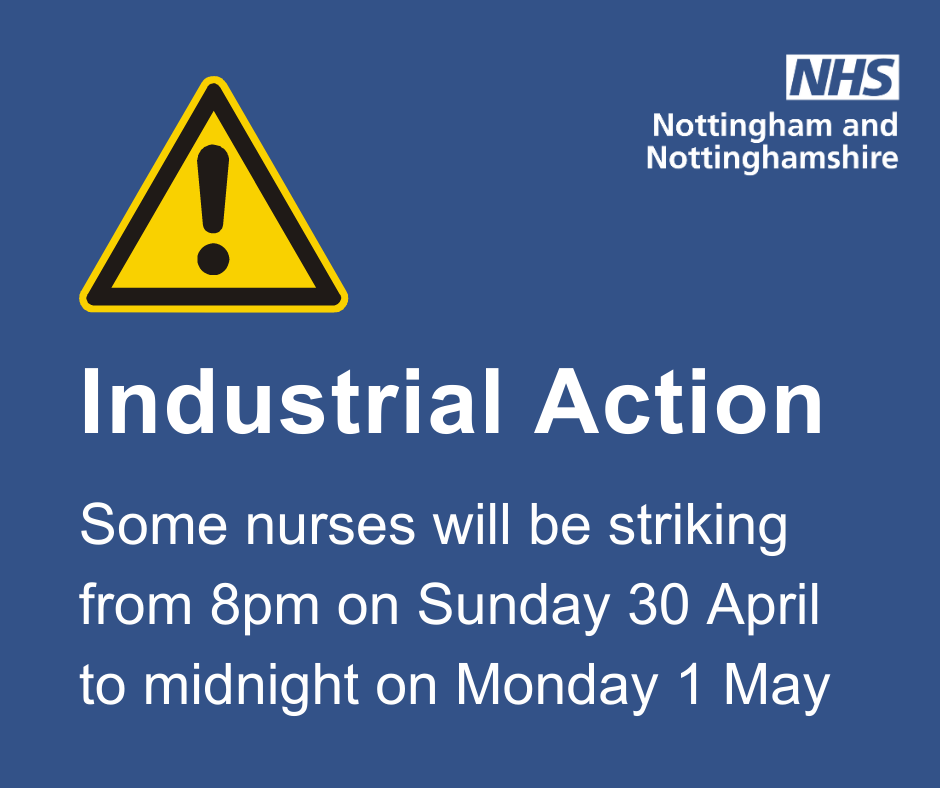Nottingham and Nottinghamshire ICB

Health leaders across Nottingham and Nottinghamshire are urging the public to stay safe this weekend as NHS services will be under pressure.
The Royal College of Nursing (RCN) has announced that industrial action by nurses will take place from 8pm on Sunday 30 April to 11.59pm on Monday 1 May. This will fall over the bank holiday weekend, where services may already be under pressure.
The industrial action is expected to have a significant impact on health services at Nottingham University Hospitals NHS Trust and Nottinghamshire Healthcare NHS Trust. For the first time, the RCN’s strike will also involve staff working in emergency departments, intensive care units, cancer care and other services that were previously exempt from strikes.
The public are being urged to support the NHS by using services wisely, being kind to staff and attending their appointments as planned, unless they are contacted to rearrange. As we head into the Bank Holiday it is also important that people prepare by stocking up on medication and choosing the right service for their need to make sure emergency departments are available for those who need them most.
Dr Keith Girling, Medical Director at Nottingham University Hospitals said: “We recognise the huge contribution that nurses make to the delivery of high-quality care to our patients and we respect their decision to take action in response to their recent ballot.
“Patient safety continues to be our top priority and should we need to contact patients to make changes to their planned care we will do so as soon as we can. Our emergency services will of course continue but we would appreciate the co-operation of our community in ensuring they use the most appropriate route for any advice or care they need.”
Nottinghamshire Healthcare NHS Foundation Trust Chief Executive, Ifti Majid, added: “We really value the vital contribution our RCN colleagues make across our Trust and respect their right to take industrial action. I hope that a resolution will be reached soon.
“Our priorities for the upcoming industrial action are patient safety and staff welfare and we are working hard to ensure our services continue to run safely. Over the bank holiday weekend, it’s is still really important that patients who need urgent medical care continue to come forward as normal.
“If you need medical help or advice, or you are unsure about whether you should go to hospital, go to NHS 111 online. In a life-threatening emergency call 999. Anyone who is experiencing a mental health crisis can call our dedicated 24/7 crisis line on 0808 196 3779”
The NHS is also reminding the public to continue to attend any appointments as planned unless the NHS contacts them to reschedule due to strike action.
Regardless of any strike action taking place, it is really important that patients who need urgent medical care continue to come forward as normal, especially in emergency and life-threatening cases.
Where the situation is not life-threatening, alternative support is available through NHS111 online, your nearest pharmacy or at urgent treatment centres.
